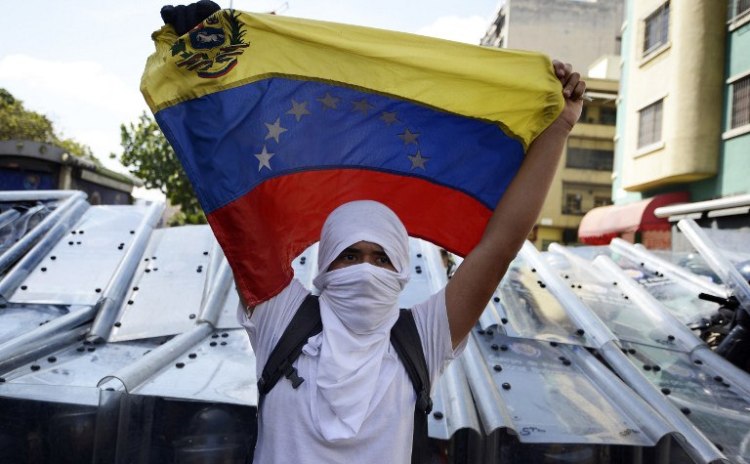Venezuela in chaos as looters smashes shop windows amid power cut in Zulia

- Country:
- China
- Venezuela Rb
President Nicolas Maduro's government scrambled on Wednesday to return power to western Venezuela following heavy looting in the second largest city, while China offered to help the South American nation end its worst blackout on record.
Power had returned to many parts of Venezuela after a nationwide outage last week that Maduro's ruling Socialist Party blamed on an act of U.S. sabotage, though it had not fully reached the western state of Zulia, where temperatures are high. Looters smashed shop windows and made off with merchandise in more than 300 businesses across the state, located along the border with Colombia, the Zulia chapter of business organization Fedecamaras said in a statement.
"This has truly been a tragedy," opposition legislator Nora Bracho, who represents Zulia in the National Assembly, said in a text message on Wednesday. "Not having power is already a burden with the temperature at 104 degrees. In addition, there's no potable water and no food." The country's top food company, Empresas Polar, said four facilities in Maracaibo, the biggest city after the capital Caracas, had been sacked this week, with looters making off with water, soft drinks and pasta.
The Information Ministry did not immediately reply to a request for comment. China on Wednesday said it was willing to provide help and technical support to restore electricity and backed Maduro's assertion that the problem was the result of sabotage.
Maduro's critics have scoffed at the sabotage explanation, insisting that rampant corruption and a decade of incompetent management by state authorities were to blame. A technical problem with transmission lines linking the Guri hydroelectric plant in southeastern Venezuela to the national power grid likely caused the blackout, experts said.
With no electricity, hospitals struggled to keep equipment running, food rotted in the tropical heat and exports from the country's main oil terminal were shut down. On Monday, Venezuelans unable to obtain potable water for home use formed lines to fill containers from a sewage pipe. The United States is preparing to withdraw its remaining diplomats in Venezuela, an effort that will not involve the U.S. military.
Venezuela authorities on Tuesday night released reporter Luis Carlos Diaz, who had been seized by intelligence agents the day before amid state-media accusations he had been involved in the blackout. A judge ordered him not to leave the country and prohibited him from making public statements - a move rights groups slammed as another example of a growing crackdown on media and free press.
"The prohibition on speaking to the media constitutes a new form of censorship that seeks to prevent the public from knowing what happened during the arbitrary detention of Luis Carlos Diaz," rights group Public Space wrote on Twitter.
(With inputs from agencies.)
- READ MORE ON:
- China and Sex
- China Post
- Air China
- Nicolás Maduro
- Cristina Fernández de Kirchner
- Radio Programas del Perú
- state of Venezuela
- Flag of Venezuela
- MercadoLibre Venezuela SA
- First Nations
- League of Nations
- United Nations
- Broad City
- Vice City
- Lake City
- Government of India
- Government of Canada
- Central government
- American Idol
- American Airlines
ALSO READ
US election: Trump leads Biden in 6 of 7 battleground states, says latest opinion poll
8 gunmen and 5 security force members die in clashes in Iran's southeast, state media report says
UNDP report highlighting digital transformation for Small Island Developing States
Militants kill 5 Iranian security officers in southeast, state media says
Israeli military halts leave for all combat units - statement










